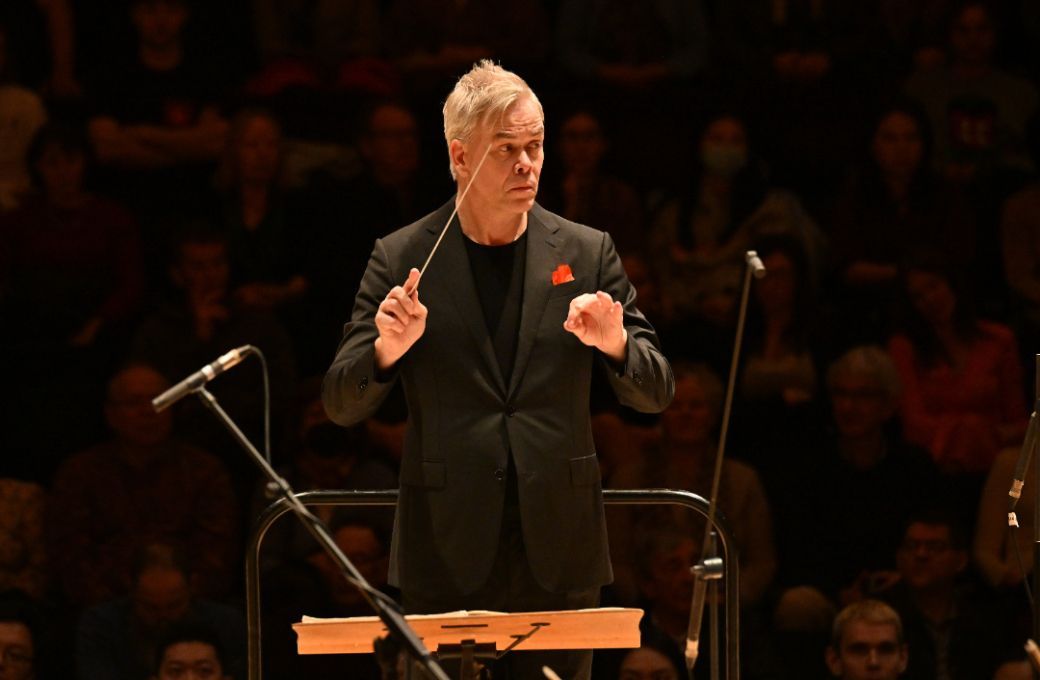By accident or design, some composers acquire a forbidding exterior even before a note of their music is heard. A recluse, initially a member of the Soviet avant-garde following the death of Stalin, notoriously self-critical, having destroyed all but 25 of her compositions before her death in 2006: step forward Galina Ustvolskaya, aka “The Lady with the Hammer”, branded as such by eminent Dutch musicologist Elmer Schönberger. Her First Symphony was the unfamiliar presence at this BBC Symphony Orchestra concert conducted by Hannu Lintu. Cast in three movements, its central section features two boy trebles (here, Oliver Barlow and Arlo Murray).

Within its 20 minutes this work has all the textures and sonorities associated with Stravinsky, including the dominance of woodwind and brass over strings, but without his wit and lightness. The recurring sharpness of the piccolo, anguish of the cor anglais, chugging string ostinatos and martial glints of the trumpets all reinforced the sense of an extended lament, and that was before the words of eight poems by Gianni Rodari added a further chill. It was more than unsettling to hear boy trebles recounting poverty and misery, and “how our fathers were shot, shot point-blank”. Having read of the brutalising power of Ustvolskaya’s music, referred to in a programme note as “sado-minimalist”, I was beginning to think, as the end of this particular musical course approached, that the lady had forgotten all about her hammer. But there it was: one brief eruption of aural violence. In the composer’s own words, “music from the black hole”.
This concert challenged all kinds of expectations. As in the opening piece, Lindberg’s Serenades, given in the presence of the composer. Everything proceeded at a stately pace, and the concentrated elegance of the ideas was much in evidence, the powerful climaxes almost Mahlerian in their expressive force. But there was a constant icy feel to the music, this particular listener never once sensing a gondoliere’s serenading warmth. Most of the time the refrain seemed to resound: “Be on your guard!” Lintu conducted with palpable commitment.
Lintu’s attention to rhythmic precision throughout the evening carried through in the orchestral accompaniment to Rachmaninov’s Rhapsody on a Theme of Paganini, the wire-stretched tautness of the strings matching the crispness of Denis Kozhukhin’s playing. There was little lushness or sentiment, the soloist preferring the cool splashes of spring water which later rippled through his encore, Grieg’s Arietta, to any expression of diathermancy. Even the Dies irae statements lacked the qualities of preternatural Russian gloom. No lack of bravura, but nothing in the way of real pianistic fireworks either.
Does a ballet score have to sound like a ballet score? While listening to Lintu’s take on Stravinsky’s Petrushka, I was reminded of the way a dancer’s limbs extend gracefully, the core supporting kinetic changes to the vertical. Lintu responded well to all the vibrancy in the score, easily conveying the hustle and bustle of the imperial Shrovetide Fair (just days away in this year’s calendar), the carnival atmosphere reflected in the way instrumental detail jumped out at you like coiled springs. There were fine solos to savour down the route, chiefly Michael Cox’s flute and Philip Cobb’s trumpet, but the recurring sharpness, underlined by the manner in which woodwind and brass frequently dominated the strings, was not tempered by charm, delicacy or indeed joy. No ménage à trois ever ends well, and the tale of the rejected Petrushka is as sad as you are likely to find anywhere, but the hard-edged delivery of Stravinsky’s magical score took it almost into the territory of an existentialist drama.


